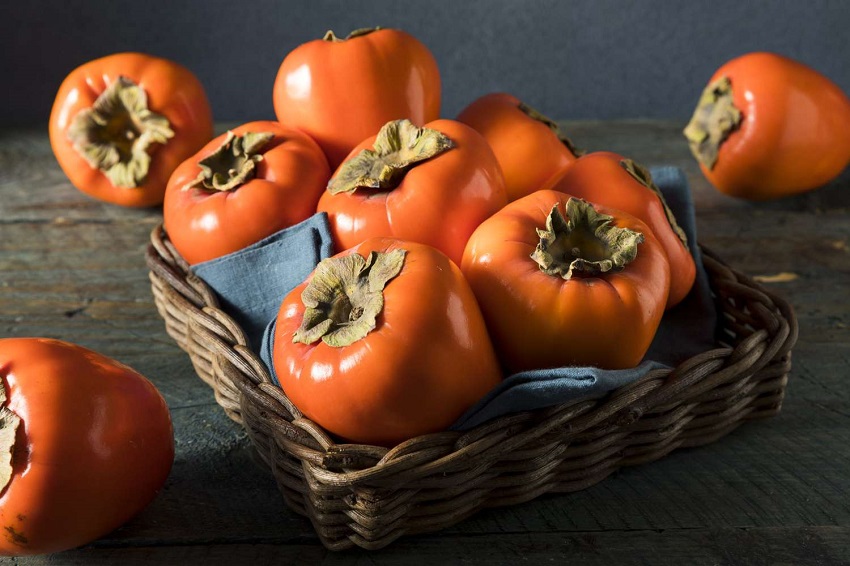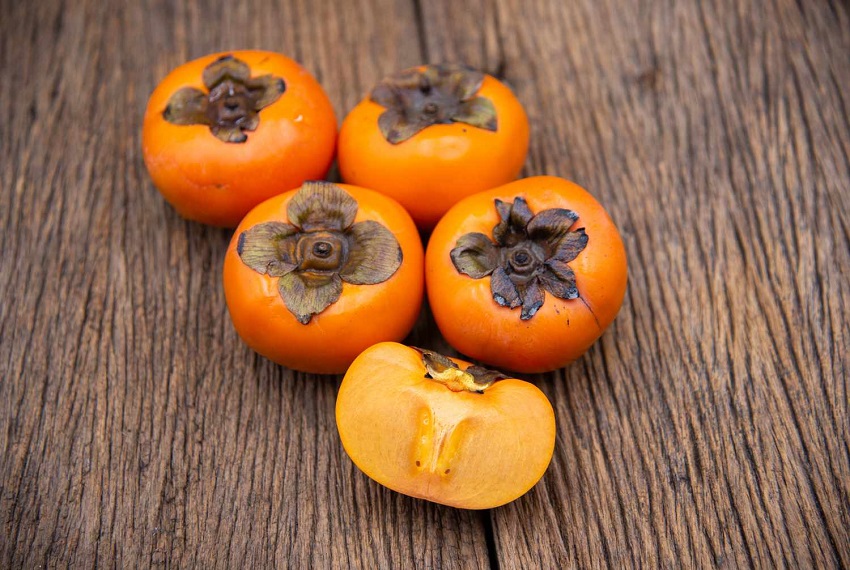
18 Jul Do You Eat Persimmons Raw or Cooked?
Persimmons are delightful fruits with a sweet, honey-like flavor and a unique texture. If you’ve recently come across this fruit and are wondering whether you should eat persimmons raw or cooked, you’ve come to the right place. In this article, we’ll delve into the different ways you can enjoy persimmons and explore the benefits of both raw and cooked consumption. So, let’s dive in! The content is introduced by https://ledmain.com/
Raw Persimmons: A Sweet and Juicy Delight
When it comes to eating persimmons, consuming them raw is a popular choice. Raw persimmons are known for their luscious sweetness and refreshing juiciness. The natural sugars in the fruit make it a perfect snack to satisfy your sweet tooth. Their vibrant orange color and smooth texture add to the visual and sensory appeal.
Types of Raw Persimmons
There are two main types of persimmons that are commonly consumed raw:
Fuyu Persimmons
Looking for some delicious persimmon recipes? Fuyu persimmons are a great option! They’re crisp, firm, and shaped like a tomato, and often eaten while still firm like an apple. Fuyu persimmons have a mild, sweet flavor with hints of cinnamon and apricot. Whether you’re looking to bake with them or add them to a salad, there are plenty of delicious persimmon recipes to try.
Hachiya Persimmons
Hachiya persimmons, on the other hand, are larger and have an elongated shape. These persimmons must be fully ripe and soft before consuming them raw. When ripe, their flesh becomes custard-like, and they offer a rich, sweet taste.
Benefits of Eating Raw Persimmons
Nutritional Value
Raw persimmons are a nutritional powerhouse. They are packed with essential vitamins, minerals, and antioxidants. They are an excellent source of vitamin A, vitamin C, vitamin E, and manganese. Additionally, persimmons contain dietary fiber, which aids in digestion and promotes a healthy gut.
Antioxidant Properties
Persimmons contain powerful antioxidants like beta-carotene and lycopene. These antioxidants help combat free radicals in the body, reducing the risk of chronic diseases and promoting overall well-being.
Hydration
Due to their high water content, raw persimmons can help keep you hydrated, especially during hot summer days.
Cooked Persimmons: Unlocking New Flavors and Textures
While raw persimmons are delicious on their own, cooking them can take their flavors and textures to a whole new level. Cooking persimmons can transform them into a versatile ingredient for various dishes and desserts.
Cooking Methods
Baking
Baking persimmons can enhance their sweetness and create a tender, caramelized texture. You can use baked persimmons in pies, tarts, or even enjoy them as a delightful dessert on their own.
Roasting
Roasting persimmons intensifies their natural flavors and adds a smoky undertone. Roasted persimmons pair well with savory dishes like roasted meats or can be a delicious topping for salads.
Pureeing
Pureeing persimmons allows you to create sauces, jams, or spreads. The smooth and velvety consistency of pureed persimmons adds richness and depth of flavor to various recipes.
Benefits of Cooking Persimmons
Enhanced Flavor
Cooking persimmons can bring out their natural sweetness and intensify their flavors. The heat unlocks hidden complexities, making them even more enjoyable.
Versatility in Recipes
Cooked persimmons can be used in a wide range of recipes, from savory dishes to mouthwatering desserts. They add a unique touch to your culinary creations and impress your taste buds.
Conclusion
Persimmons, whether eaten raw or cooked, offer a delightful eating experience. When consumed raw, they provide a juicy and sweet sensation, while cooking them unlocks new flavors and textures. The choice ultimately depends on your personal preference and the culinary adventure you wish to embark on. So, don’t hesitate to explore both options and savor the wonders of persimmons!
FAQs
Q1: Are persimmons a good source of vitamins?
Yes, persimmons are an excellent source of vitamins, including vitamin A, vitamin C, and vitamin E.
Q2: Can you eat the skin of a persimmon?
Absolutely! The skin of a persimmon is edible and contains additional nutrients and fiber.
Q3: Can persimmons help with digestion?
Yes, persimmons are rich in dietary fiber, which aids in digestion and promotes a healthy gut.
Q4: Can you freeze persimmons for later use?
Yes, you can freeze persimmons to extend their shelf life. Simply peel and slice them before freezing.
Q5: Can persimmons be used in baking?
Certainly! Persimmons can be a delightful addition to baked goods like pies, bread, and cakes.

Sorry, the comment form is closed at this time.